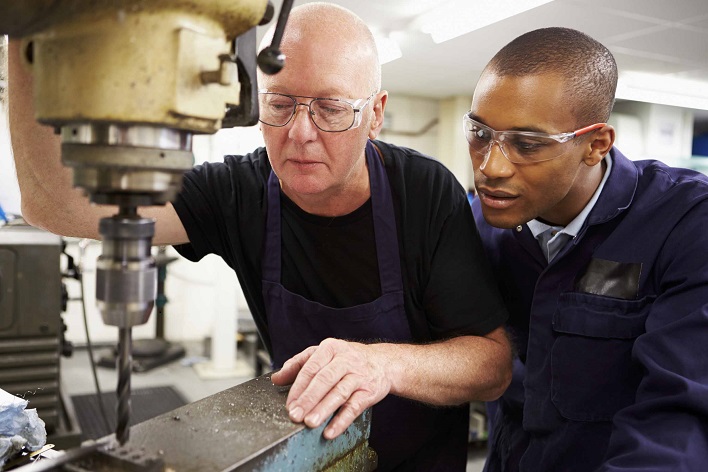Thanks to nearly $10 million in new grants, the Full Employment Council is launching a program that will prepare workers faster for some of the city’s most in-demand jobs.
This fall, the council will begin to offer accelerated, nontraditional training for four industries: technology, health care, advanced manufacturing and financial services.
The goal isn’t just to help people find great jobs, though that is a priority. In fact, the council aims to assist at least 2,000 people over the next five years. But officials also want to create a more responsive, more organic system for training and retraining workers.
“We have to be able to create a system that responds to that demand in a timely fashion,” said Clyde McQueen, the council’s president and CEO.
The new training will take less time—three months instead of six. While partners like the University of Central Missouri and Metropolitan Community College will help deliver the training, courses won’t necessarily be tied to a traditional semester calendar. They won’t always be offered for credit, reducing the cost.
The Full Employment Council also plans to survey local companies frequently to make sure the training covers the exact skills that employees really need. The council is partnering with “industry intermediaries,” organizations that have existing relationships with employers.
TECHHIRE AND REBOOT U
About half the money for the training is coming from the renewal of an earlier Health and Human Services grant.
The U.S. Department of Labor is providing the other half of the funding, through its TechHire initiative. Deputy Labor Secretary Christopher Lu traveled here last month to announce that Kansas City was one of 39 communities to win a TechHire grant. The $5 million award is one of the largest that FEC has received in recent years, McQueen said.
Under TechHire, the federal government set aside $150 million in grants for programs that provide “next generation” training for younger adults, veterans, former convicts, people with disabilities and others.
FEC’s accelerated training builds on Reboot U, a pilot project that McQueen and his team launched last year for IT and health-care workers.
In Reboot U, clients participated in “Shark Tank”-style interviews, worked paid internships and received general IT training, as well as classes customized to the specific sector where they were going to work.
THE CONTINUING NEED FOR CONTINUING ED
The Full Employment Council’s new training will be geared to those between the ages of 17 and 29. That’s important because that generation suffers from higher unemployment rates and has fewer resources, McQueen said.
And frankly, the workforce is going to need them as Baby Boomers age into retirement.
You can already see that in the manufacturing sector. In 2000, the median age of a U.S. manufacturing worker was 40.1 years. By 2012, it was 44.7, about 2.4 years older than the average nonfarm worker.
For high-skill manufacturing workers, the typical age is closer to 56.
There’s another thing the Full Employment Council will be doing differently with this new training initiative: It’s going to emphasize the need for workers to continue building their skills and keep up their certifications. It’ll be possible for clients to come back and continue to receive training.
“We will not be exiting them from the program automatically, but will encourage ongoing pursuit of career-building activities,” McQueen said.
The Full Employment Council assists employees who live on the Missouri side of the metro. But it’s open to working with employers across the region. The University of Kansas Medical Center, for example, has been an active partner, McQueen said.
Interested in hiring workers through the Full Employment Council? Contact Raqayyah Harvey at (816) 471-2330 or rharvey@feckc.org.


